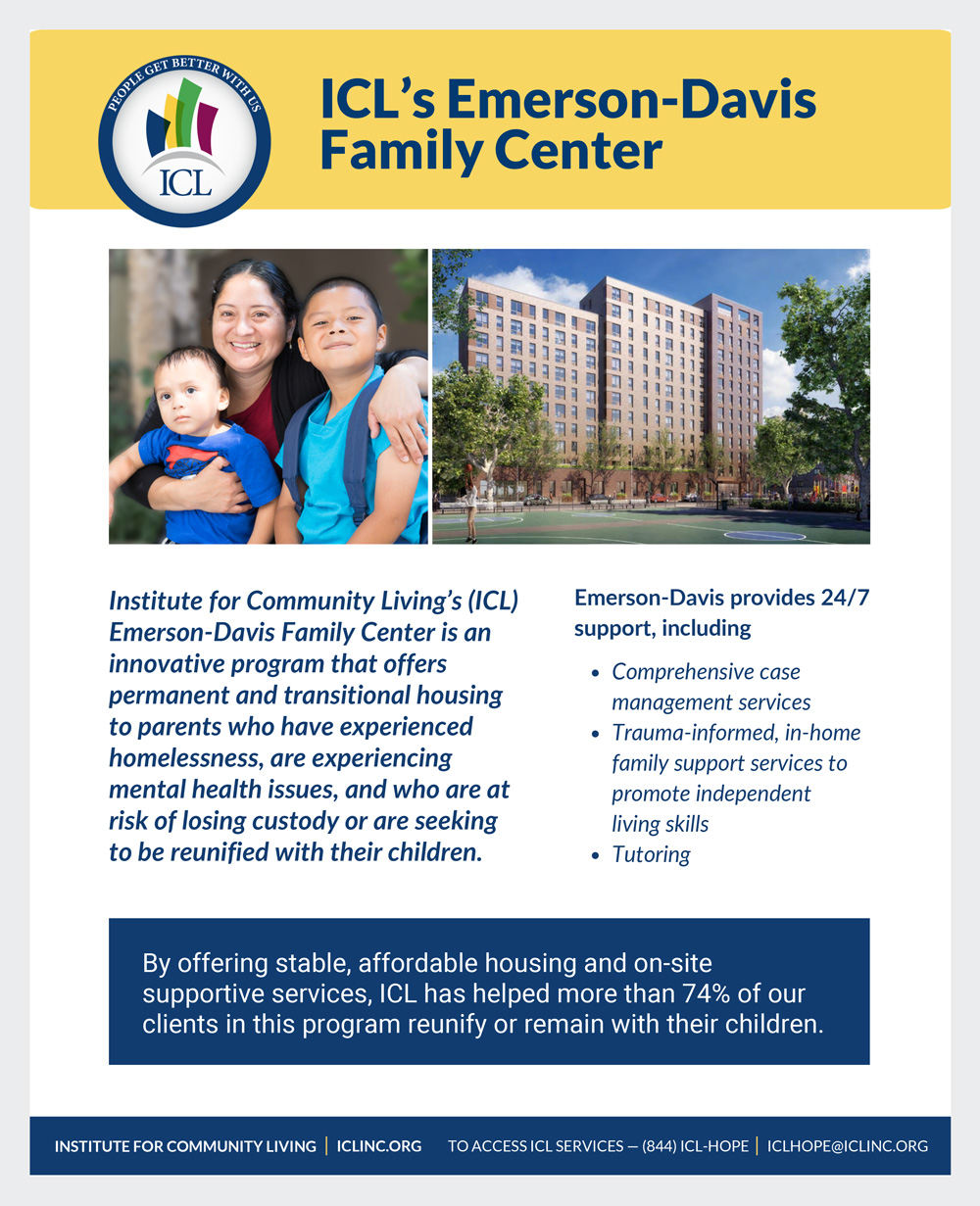Becoming a mother is a beautiful and rewarding experience, but it comes with a set of challenges that often go unrecognized. Maternal mental health is a critical dimension of perinatal care that is often overlooked amid the focus on the physical aspect of pregnancy. During the perinatal period, expecting mothers are presented with biopsychosocial challenges and are sometimes more vulnerable to mental health disorders such as anxiety, mood disorders, and, in the most extreme cases, postpartum psychosis or mania. Although there is a growing understanding of perinatal psychiatric illness, many women continue to face stigma when seeking treatment that hinders identification and treatment of perinatal mental health disorders. Mental health professionals must enhance support for maternal mental health and actively dismantle stigma that adversely affects both mothers and children.

Maternal Mental Health and Clinical Implications
Maternal mental health challenges can significantly impact maternal functioning, trajectories of child development, and family dynamics more broadly. According to Gavin et al., postpartum depression ranges from 10% to 20% across the globe, yet underreporting surely underestimates an accurate prevalence of this condition. Hormonal fluctuations, sleep deprivation, psychosocial stress of new parenthood, and previous psychiatric history can all contribute to the complexities of perinatal mental illness. Stein et al. have shown that untreated perinatal depression can impair maternal-infant bonding, contributing to negative cognitive and emotional outcomes in newborns. Early recognition and intervention are imperative for maternal recovery and to ensure positive long-term outcomes for offspring.
Stigma as a Barrier to Perinatal Mental Health Care
As with all mental health disorders, stigma is a pervasive barrier for mothers seeking treatment for perinatal mental health disorders. Thornicroft and colleagues have pointed out that the inherently joyful idealization of motherhood by society sometimes invalidates the distress that many mothers may experience during pregnancy and after childbirth. Some mothers may internalize feelings of shame and fear judgment by others. Fear of punitive consequences such as custody concerns may pervade the consciousness of mothers who are suffering symptoms of mental illness related to pregnancy and motherhood.
Unfortunately, as Letourneau and colleagues have pointed out, even healthcare systems can perpetuate stigma surrounding perinatal mental health concerns. It is essential for mental health professionals to foster a nonjudgmental rapport with expecting mothers and new mothers, normalizing screenings for mental health as standard practice to reduce stigma.
Interventions and Approaches to Support Maternal Mental Health
- Universal screening and assessment for mood and anxiety symptoms should be administered during every prenatal and postpartum visit (Gaynes et al., 2005). Valid, reliable tools such as the Edinburgh Postnatal Depression Scale (EPDS) can help with early detection, appropriate triage, and treatment.
- Integrating mental health services into primary care treatment, with collaboration among obstetricians, psychiatric providers, and social workers, can improve access to mental health services for mothers both pre- and post-labor.
- Psychotherapeutic interventions such as cognitive behavioral therapy (CBT), interpersonal therapy, and mindfulness-based methods have been shown to be effective in treatment for perinatal depression and anxiety (Dennis and Chung-Lee, 2005). Psychotropic medication may be helpful for moderate to severe cases with careful, balanced consideration given to the risks and benefits of medication and their potential fetal and neonatal effects.
- Peer specialist involvement in maternal mental health treatment can help reduce feelings of isolation. Including family in treatment can strengthen support networks for new mothers (Leach et al., 2016).
- Advocacy by mental health clinicians for policies like sufficient paid parental health and workplace accommodation can support the well-being of new mothers.
Professional Responsibility to Reduce Stigma
Mental health professionals must approach evaluation and treatment of perinatal and postnatal mental health care through a trauma-informed lens. Language matters, and providers should validate patients’ experiences without reinforcing stereotypes that perpetuate stigma. Educational programs within healthcare delivery systems can enhance providers’ knowledge, attitudes, and practices with regard to perinatal mental illness. Vigilant self-reflection on implicit bias can also improve patient-provider relationships and improve outcomes for mothers and newborns (Corrigan et al., 2012).
Effect of Maternal Mental Health on Child Mental Health
Peri-natal and post-natal mental health challenges can have intergenerational consequences, as lack of treatment can contribute to increased risks of psychiatric conditions in children (Stein et al., 2014). Addressing maternal mental health is of clinical importance as a population health priority, potentially mitigating downstream burdens on society.
Conclusions
Effectively addressing maternal mental health requires a multidisciplinary, evidence-based approach. Integration of routine, standardized screening for mental health conditions during the pre-natal and post-natal periods, offering evidence-based interventions to treat maternal mental health disorders, and advocating to reduce stigma surrounding perinatal mental health care can improve maternal and child outcomes. Reduction of stigma is essential to foster recovery, contributing to healthy families and communities.
Glen P. Davis, MD, is Chief Medical Officer of Institute for Community Living (ICL).
References
Corrigan, P. W., Morris, S. B., Michaels, P. J., Rafacz, J. D., & Rüsch, N. (2012). Challenging the public stigma of mental illness: A meta-analysis of outcome studies. Psychiatric Services, 63(10), 963-973. https://doi.org/10.1176/appi.ps.201100529
Dagher, R. K., McGovern, P. M., & Dowd, B. E. (2014). Maternity leave duration and postpartum mental and physical health: Implications for leave policies. Journal of Health Politics, Policy and Law, 39(2), 369-416. https://doi.org/10.1215/03616878-2392577
Dennis, C. L. (2003). Peer support within a health care context: A concept analysis. International Journal of Nursing Studies, 40(3), 321-332. https://doi.org/10.1016/S0020-7489(02)00092-5
Dennis, C.-L., & Chung-Lee, L. (2006). Postpartum depression help-seeking barriers and maternal treatment preferences: A qualitative systematic review. Birth, 33(4), 323-331. https://doi.org/10.1111/j.1523-536X.2006.00130.x
Gavin, N. I., Gaynes, B. N., Lohr, K. N., Meltzer-Brody, S., Gartlehner, G., & Swinson, T. (2005). Perinatal depression: A systematic review of prevalence and incidence. Obstetrics & Gynecology, 106(5), 1071-1083. https://doi.org/10.1097/01.AOG.0000183597.31630.db
Gaynes, B. N., Gavin, N., Meltzer-Brody, S., et al. (2005). Perinatal depression: Prevalence, screening accuracy, and screening outcomes. Agency for Healthcare Research and Quality, Evidence Report/Technology Assessment No. 119.
Howard, L. M., Molyneaux, E., Dennis, C. L., Rochat, T., Stein, A., & Milgrom, J. (2014). Non-psychotic mental disorders in the perinatal period. The Lancet, 384(9956), 1775-1788. https://doi.org/10.1016/S0140-6736(14)61276-9
Leach, L. S., Poyser, C., Cooklin, A. R., & Giallo, R. (2016). Prevalence and course of anxiety disorders (and symptom levels) in men across the perinatal period: A systematic review. Journal of Affective Disorders, 190, 675-686. https://doi.org/10.1016/j.jad.2015.09.063
Letourneau, N., Dennis, C.-L., Cosic, N., & Linder, J. (2012). The effect of perinatal depression treatment for mothers on parenting and child development: A systematic review. Depression Research and Treatment, 2012, 1-10. https://doi.org/10.1155/2012/805904
O’Hara, M. W., & Swain, A. M. (1996). Rates and risk of postpartum depression—a meta-analysis. International Review of Psychiatry, 8(1), 37-54. https://doi.org/10.3109/09540269609037816
Shore, J. H., Yellowlees, P., Caudill, R., et al. (2018). Best practices in videoconferencing-based telemental health. Telemedicine and e-Health, 24(11), 827-832. https://doi.org/10.1089/tmj.2018.0237
Stein, A., Pearson, R. M., Goodman, S. H., et al. (2014). Effects of perinatal mental disorders on the fetus and child. The Lancet, 384(9956), 1800-1819. https://doi.org/10.1016/S0140-6736(14)61277-0
Thornicroft, G., Mehta, N., Clement, S., et al. (2016). Evidence for effective interventions to reduce mental-health-related stigma and discrimination. The Lancet, 387(10023), 1123-1132. https://doi.org/10.1016/S0140-6736(15)00298-6





